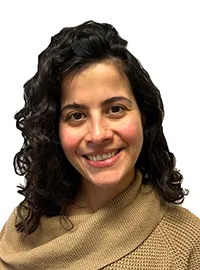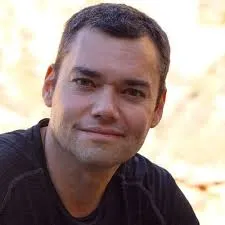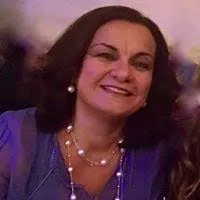Presbyterian Advocacy Hour turns out 270 viewers
Three speakers touch on the horror in Gaza and how Presbyterians can advocate for peace

LOUISVILLE — A day after this statement from the World Council of Churches called for an end to apartheid and occupation in Palestine, the Presbyterian Church (U.S.A.)’s Office of Public Witness held its monthly Presbyterian Advocacy Hour on the war in Gaza and the ongoing crisis in Palestine and Israel, which now includes Iran. More than 270 people participated.

Three people spoke Wednesday as part of “Seeking Peace, Speaking Truth: Presbyterian Advocacy for Justice and Peace in the Holy Land”:
- Muna Nassar, a Palestinian Christian leader from Bethlehem and the World Communion of Reformed Churches’ Executive Secretary for Mission and Advocacy
- Peter Beinart, a leading Jewish political commentator and journalist who teaches at City University of New York
- Noushin Framke, a Presbyterian ruling elder and leader in the PC(USA)’s Palestine Justice Network.
Asked to speak about the urgency of the situation in Gaza, Nassar said everyone viewing the webinar could agree that “this is very urgent. The situation has been escalating at an alarming speed.”

She recalled witnessing as a 10-year-old a 40-day siege during the Second Intifada. Stopped by an Israeli military tank, the girl was asked, “What are you doing?”
“I was standing outside my house,” she said. “I felt like there is me and there is this Israeli military tank and nothing else. No one else could provide security. I remember this deafening silence.”
Today, when she sees images and video clips of children and grownups “who cannot protect themselves in Gaza, I feel this on a much larger scale. For us Palestinians, the silence and the urgency have always been there.”
The sorrow “has become devastatingly familiar,” Nassar said. “To think it is June 25 and the war is as brutal, as inhumane and as U.S.-funded as the day it began. If these thousands of videos cannot stop another child from being murdered, where is the urgency? People have normalized suffering and pain. How is the world still silent about this?”
Ever since the Hamas attack on Israel on Oct. 7, 2023 and Israel’s retaliation, “we have woken up to gut-wrenching anxiety and this fanatical need to check the news from Gaza,” she said. “We thought patients would never be shot in a hospital ward or people would be shot waiting in line for food.” People are being “made invisible by the software of the media,” Nassar said.
“As a Palestinian Christian, I look at the Western church and say, ‘what is the Western church saying? When will it break its silence?’”
She suggested “listening to Palestinian Christians who have written so much about this. Try to engage in ways that will broaden the conversation and not make it a polarizing issue.”
“There is urgency to act,” Nassar said, “and to know what’s really happening in Palestine.”
One of Beinart’s central points was that being a faithful Jew doesn’t necessarily equate with being a strong supporter of Israel. His most recent book is “Being Jewish After the Destruction of Gaza: A Reckoning.”

“It is common on book tours to find people who say, ‘I can’t talk to my parents or my grandparents on this issue,’” Beinart said, calling the equating of being a good Jew with strong support for Israel “idolatrous.”
“In Judaism, idolatry is just about the paramount sin,” he said. “It is treating anything human-made as if it is sacred, and a state is human-made.”
He pointed out that human beings are made in the image of God, while states “are mere instruments for the protection of human life and flourishing.” If states destroy human lives, “they must be reimagined, because states are secondary to human beings.”
“It’s hard to follow two brilliant speakers,” said Framke, who was tasked with identifying recent Presbyterian policies and actions taken at the General Assembly level.

Framke cited this timeline compiled by the Palestine Justice Network, which goes back to the 216th General Assembly (2004). Included are the “Breaking Down the Walls” report from 2010 and 2012 and the divestment from three companies in 2014 following what the Rev. Dr. Glenn Dickson and others from Westminster Presbyterian Church in Gainesville, Florida, witnessed during a trip to the West Bank.
“Our church prides itself in being connectional, not hierarchical,” Framke noted.
Framke was part of a Palestine Justice Network journey last year that included a stop at the Aida Refugee Camp.
“As the granddaughter of a survivor of the Armenian genocide, I fervently say silence is not an option,” Framke said. “It’s a shrug. It normalizes the dark chapter we are living through.”
“We need to speak out,” Framke said, “and do it in the name of the Prince of Peace.”
During a question-and-answer session following the presentations, Beinart said that what will provide long-term safety for Jews in Israel “is a state that treats everyone from the Jordan to the Mediterranean equally under the law.”
“Violence makes everyone less safe,” he said.
OPW’s Catherine Gordon pointed out two ways to encourage elected officials to work harder for peace: by supporting the Block the Bombs Act and by joining the Letters for Gaza campaign.
The next edition of the Presbyterian Advocacy Hour, this one on community organizing, will be held online at noon Eastern Time on July 23. Register here.
You may freely reuse and distribute this article in its entirety for non-commercial purposes in any medium. Please include author attribution, photography credits, and a link to the original article. This work is licensed under a Creative Commons Attribution-NonCommercial-NoDeratives 4.0 International License.




